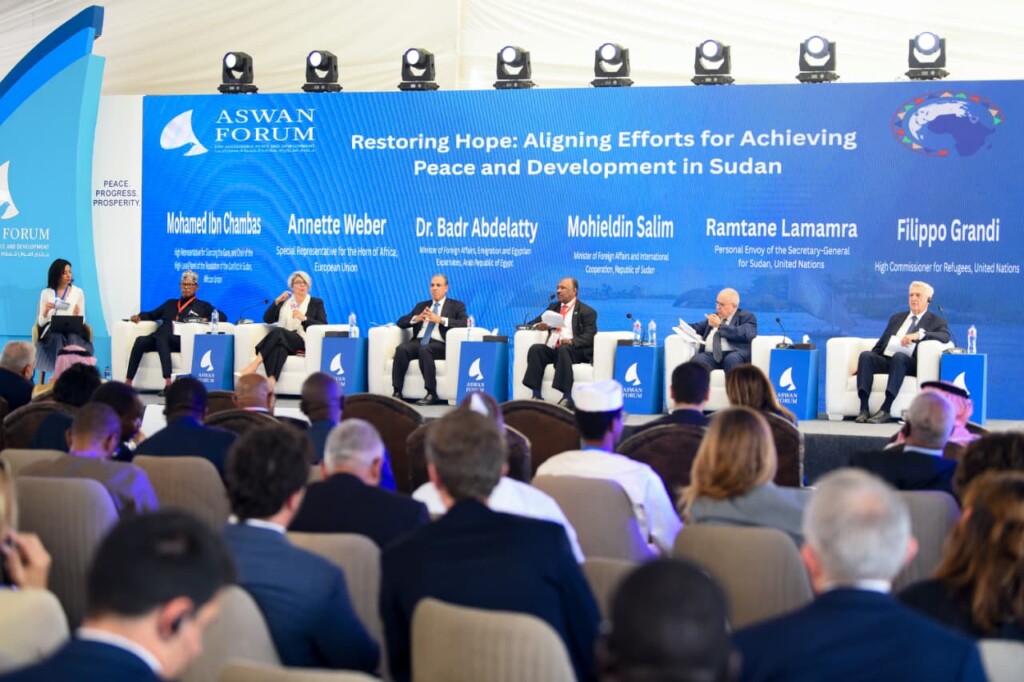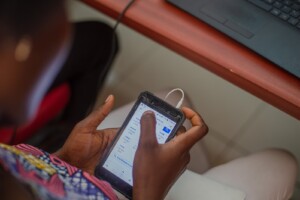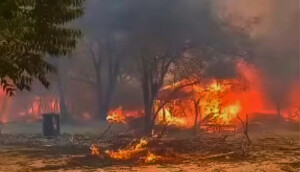Int’l call for Sudan ceasefire as anti-graft leaders convene in Uganda

Delegates attend the special session on Sudan during the Aswan Forum, October 19, 2025. (Photo: Egyptian Government)
Egypt and the European Union have renewed calls for a political solution to Sudan’s devastating conflict, as academics and activists meeting in Uganda warned that entrenched corruption continues to fuel the war and undermine prospects for peace.
Speaking at the high-level session titled Restoring Hope: Aligning Efforts for Peace and Development in Sudan during the fifth Aswan Forum for Peace and Sustainable Development on Sunday, Egypt’s Foreign Minister Badr Abdelatty declared that “there is no military solution” to Sudan’s crisis, urging warring parties to agree to a humanitarian truce as a first step towards a permanent ceasefire.
Abdelatty stressed the need to preserve Sudan’s national unity and sovereignty, saying: “The solution must come from within Sudan, through a comprehensive political process owned by the Sudanese themselves.”
He called on all actors to respect the principle of “one state, one authority, and one weapon”, warning against any interference in Sudan’s internal affairs.
The session also brought together Sudanese Foreign Minister Mohieldin Salih, European Union Envoy to the Horn of Africa Annette Weber, UN High Commissioner for Refugees Filippo Grandi, and African Union representative Mohammed Ibn Chambas.
Discussions centred on how to achieve a sustainable ceasefire and rebuild post-war governance under Sudanese leadership.
EU calls for ceasefire
In Brussels, the Council of the European Union issued a strong statement holding both the Sudanese Armed Forces (SAF) and the Rapid Support Forces (RSF) responsible for the conflict, urging them to agree to a ceasefire, allow humanitarian access, restore civilian rule, and ensure accountability.
The Council warned it was ready to use “all available foreign policy tools,” including targeted sanctions, to push for peace. It also voiced concern over Sudan’s unity and the rise of “parallel governance structures,” reaffirming the EU’s commitment to stand “with one voice” for freedom, peace, and justice in Sudan.
Entebbe summit
In Entebbe, Uganda, the 2025 Sudan Integrity Summit brought together journalists, activists, and business leaders to examine how corruption drives Sudan’s war economy.
Centre for International Private Enterprise’s Sudan Country Director Shaza Elmahdi praised journalists working under threat and welcomed the new Anti-Corruption Alliance.
Speakers warned that corruption within the media, military, and state institutions entrenches the conflict.
Dr Suleiman Baldo highlighted military control of state assets, while economist Ahmed Abu Sen called the war “a struggle over resources, not ideology.”
Political scientist Bakri El Jak described Sudan as “a kidnapped state ruled by weapons, not law,” urging international oversight of reconstruction.
Participants agreed that corruption forms an “invisible system” financing the war through local and international networks.











 and then
and then